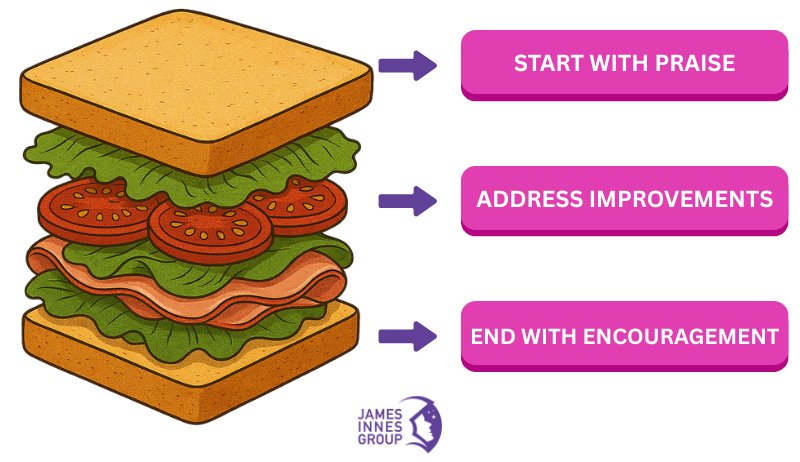How to Showcase Communication Skills on Your CV: Top 15 Skills To Include with Examples
Employers across industries, whether tech, healthcare, or retail, value candidates who can communicate effectively. Why? Because strong communication drives success in any role, and if you've decided it's not important, you'll be the one getting all the rejections.
This article will guide you through the top 15 communication skills to include on your CV, how to list them effectively, and tips to develop these soft skills for long-term career growth. A 2024 study by People Management revealed that more than half (54%) of UK employers are shifting to skills-based hiring, prioritising abilities like communication, teamwork, and critical thinking over traditional education or experience.
See? It matters now more than ever! But, rest assured, we'll help you describe communication skills in a CV that grabs attention for all the right reasons.
Table of Contents
-
Why Communication Skills Matter on Your CV
-
How to Effectively List Communication Skills
-
Top 15 Communication Skills + Examples
-
1. Active Listening Skills
-
2. Verbal Communication Skills
-
3. Written Communication Skills
-
4. Non-verbal Communication Skills
-
5. Clarity and Conciseness
-
6. Empathy
-
7. Storytelling
-
8. Negotiation
-
9. Conflict Resolution
-
10. Persuasion
-
11. Team Collaboration
-
12. Feedback Delivery
-
13. Cultural Awareness
-
14. Confidence
-
15. Adaptability in Communication
-
-
Tips to Highlight Communication Skills in Different CV Section
-
How to Demonstrate Communication Skills for Career Growth
-
Frequently Asked Questions (FAQs)
Why Communication Skills Matter on Your CV
Communication isn't just about speaking and listening. I've unpacked 15 key communication skills for you to brag about. Chances are that your role involves clients, leadership, or teamwork so highlighting strong communication skills on your CV will make you irresistible to employers. Don’t just speak well - listen, adapt, and connect like a pro.
By the time you've finished reading our list of skills, and grabbed a pen and paper to jot down the ones that match your application, you'll be ready to secure the role you deserve.
How to Effectively List Communication Skills on Your CV
Get strategic with your communication skills. Place them in your skills section, work experience, or summary, depending on the role. Match your skills to the job description: If teamwork is key, emphasise collaboration with evidence. Use action verbs and hard numbers to show impact.
Don’t just say "good communicator." Instead, write, "Led a team of 10, boosting productivity by 20% by shortening weekly meetings to keep them concise." Specificity wins. Avoid vague terms and prove how your skills delivered results in past roles.
This blog will prove to you that you DO have communication abilities - just perhaps in a way you hadn't thought about before. You may even have them in your CV already, but they need a little bit of expansion. Try our free CV review for peace of mind!
Top 15 Communication Skills + Examples
Now we've got an idea of how to present your abilities, let's examine the types of communication skills that will be most prized by recruiters. We've also done the legwork for you, by showing you exactly how they might look on your CV!
1. Active Listening Skills
Do you find that people often confide in you? You're probably great at active listening.
Active listening involves fully focusing on the speaker, understanding their message, and responding thoughtfully, rather than just waiting for your turn to speak. It’s a critical skill for roles like customer service, counselling, or team management, where understanding others’ needs is key. Active listening builds trust, reduces misunderstandings, and cultivates stronger relationships. To develop this skill, practice maintaining eye contact, encouraging body language such as nodding to show understanding, and summarising what you’ve heard before responding.
Example:
"Resolved 95% of customer complaints in a high-volume retail environment by actively listening to concerns and providing tailored solutions."
2. Verbal Communication Skills
Verbal communication is your ability to express ideas clearly and confidently through spoken words, whether in one-on-one conversations, meetings, or presentations. It’s essential for roles like sales, teaching, or management, where you need to inform, persuade, or motivate others. Strong verbal communication ensures your message is understood and presentation skills mean that it is heard and not forgotten.

Example:
"Chosen to deliver the weekly assembly by the head teacher at my school due to strong verbal communication and public speaking skills."
3. Written Communication Skills
Good written communication ensures your message is professional, free of errors, and tailored to your audience. This is important in many scenarios. A marketing professional might write compelling ad copy, while an administrator might draft concise emails to stakeholders. For many roles, speed and accuracy are also paramount. To enhance this skill, practice writing daily, use grammar tools like Grammarly, and read widely to improve your style.
If you struggle with written communication, read our blog on how to write a CV.
Example:
"Achieved a 10% increase in revenue for [client] through persuasive sales copywriting."
4. Non-verbal Communication Skills
Non-verbal communication includes body language, facial expressions, tone of voice, and gestures, all of which can convey messages as powerfully as words. It’s vital in roles like sales, leadership, or customer service, where your demeanour can build trust or influence perceptions. Especially in high-stakes situations where first impressions count, your feel for non-verbal cues could make or break your success.
For instance, maintaining eye contact during a job interview signals confidence, while a warm tone can make clients feel valued. Poor non-verbal cues, like slouching or avoiding eye contact, can undermine your message. To improve, record yourself speaking to observe your habits, or ask for feedback from colleagues.
Example:
"Built strong client relationships as a sales representative by maintaining eye contact, and focusing on body language during negotiations."
5. Clarity and Conciseness
This skill is essential in fast-paced roles like project management, customer service, or tech support, where time is limited, and misunderstandings can lead to errors. Being concise also shows respect for others’ time, making your communication more effective. To develop this, practice summarising complex ideas in a few sentences, and avoid overcomplicating your language.
Example:
"Streamlined team updates as a project coordinator, cutting meetings per week by 30%, which improved project delivery speed."
6. Empathy
Empathy helps in resolving conflicts by showing you care about others’ perspectives. To grow this skill, practice active listening and put yourself in others’ shoes during conversations, whether it is a colleague or a client. Having a positive attitude and taking a deep breath will allow you to be empathetic even when you're frustrated by someone else's actions.
Example:
"Improved team morale as a team leader by addressing concerns empathetically, leading to a greater employee retainment rate."
7. Storytelling
Effective storytelling isn't just for novelists! It's central for building engagement and rapport in a range of scenarios, from marketing to public speaking. Storytelling involves structuring your narrative with a clear beginning, middle, and end, and using vivid details to draw readers and listeners in. To improve, practice sharing anecdotes in conversations, focusing on emotional impact.
Storytelling is also really important during the interview stage, so if you'd like to brush up on it, check out our interview coaching where you can practise and perfect the STAR method! Excellent communication skills play a pivotal role in a face-to-face situation and will be one of the main reasons you get hired.

Example:
"Developed a storytelling-based marketing campaign as a brand manager, doubling social media engagement through emotionally resonant content."
8. Negotiation Skills
Negotiation involves using persuasive communication to reach mutually beneficial agreements, often in high-stakes situations. It’s a key skill for sales, procurement, or management roles, where you need to balance assertiveness with diplomacy. Effective negotiation requires listening, understanding the other party’s needs, and clearly articulating your position.
Example:
"Negotiated vendor contracts as a procurement assistant, securing better terms that reduced annual costs by £10,000."
9. Conflict Resolution
Conflict resolution is the ability to address disagreements constructively, ensuring all parties feel heard and a solution is reached. It’s crucial for management, HR, or team-based roles, where disputes can disrupt productivity. This skill requires patience, empathy, and the ability to remain neutral while facilitating dialogue.
Example:
"Mediated team conflicts as a Front of House Supervisor, resolving disputes that enabled the team to complete the busiest night of the year without any issues."
10. Persuasion
The difference between negotiation and persuasion is that negotiation often ends in compromise. Persuasion, however, is the art of convincing others to support your ideas, decisions, or actions, often through logical arguments and emotional appeal. It’s essential for sales, marketing, or leadership roles, where influencing stakeholders is key. Persuasion requires understanding your audience, building trust, and presenting compelling evidence-based arguments. Practice pitching ideas to colleagues and seek feedback on your approach.
Example:
"Convinced management to adopt new software as a team lead, streamlining operations across 3 departments."
11. Team Collaboration
Team collaboration means working effectively with others by communicating clearly and contributing to shared goals. It’s a must for most roles, especially in project-based or cross-functional teams, where alignment is critical. Collaboration and interpersonal skills require active listening, clarity, and respect for diverse perspectives. To improve, participate in group projects and focus on building rapport with teammates in and outside of work.
Example:
"Collaborated with an SEO agency as a web developer, successfully launching a new website feature which increased visibility and matched the client brief for UX."
12. Feedback Delivery
Feedback delivery involves providing constructive criticism in a way that’s clear, respectful, and actionable, helping others improve. It’s a valuable skill in mentorship, management, or education roles, where guiding others’ growth is key. Try the "sandwich" method: start with praise, address improvements, and end with encouragement.

Example:
"Mentored 3 junior staff as a team leader, helping them achieve their quarterly goals through clear and actionable feedback."
13. Cultural Awareness
Cultural awareness means understanding and respecting cultural differences, allowing for effective communication in diverse teams. Nowadays, it's important in almost every role, from HR to demonstrating your customer service abilities, where you'll interact with people from varied backgrounds. To grow this skill, educate yourself on cultural norms and practice active listening with diverse colleagues.
Example:
"Led a global team of 8 as a project manager, ensuring inclusive communication that strengthened team unity across cultures."
14. Confidence
Confidence in communication means expressing your ideas with assurance, inspiring trust in your audience. It’s crucial for leadership, sales, or client-facing roles. If you don't believe in what you're saying, how can you expect someone else to? Confidence doesn’t mean arrogance; it’s about being self-assured while remaining open to feedback. If you ignore the feedback bit, you'll lose credibility very quickly!
Example:
"Pitched ideas to executives as a sales manager, securing approval for a £50,000 initiative through confident and clear communication."
15. Adaptability in Communication
Adaptability in communication means adjusting your style to suit different audiences, contexts, or situations, ensuring your message is always effective. It’s key in dynamic roles like consulting, marketing, or tech, where you might interact with varied stakeholders. This skill requires audience awareness, flexibility, and quick thinking. To improve, practice communicating with different groups and seek feedback on your clarity. Try explaining a complex concept to your Granny, that's the acid test to see if you can adapt your message!
Example:
"Tailored presentations for technical and non-technical stakeholders as a consultant, ensuring alignment on project goals across teams."
Tips to Highlight Communication Skills in Different CV Sections
There's no set rule on where to show off your excellent communication skills in your CV. But here are some places where I think they'd will fit well.
In your personal statement write, "Skilled communicator with a proven record in team leadership and client relations."
In work experience, use results, like "Improved client retention with effective communication."
In the skills section, list specifics: "Storytelling, Conflict Resolution, Written Communication." Always link skills to outcomes.
Tailor each CV section to the job so your communication skills match what the employer is looking for.
How to Demonstrate Communication Skills for Career Growth
Communication skills are your CV’s secret weapon. They prove you can connect, collaborate, and lead with impact. Add these top 15 skills, from active listening to adaptability, and back them upwith results to make your CV stand out. To take your communication skills further, practice daily by engaging in conversations that challenge you to listen actively, share ideas clearly, and adapt to different audiences.
For expert help in showcasing these skills, turn to us at The CV Centre. With over 25 years of helping people land their dream job, our team specialises in crafting standout CVs that make your communication skills shine!
What are you waiting for?
Update your CV now, take control of your career, and act today! Employers are waiting for a communicator like you!
FREQUENTLY ASKED QUESTIONS
What Are the Best Communication Skills for a CV?
The best communication skills for a CV? Think active listening, verbal communication, and written communication, they’re your golden ticket to impress. You can also storytelling for a bit of flair or empathy to show you’re not a robot. Most importantly, tailor your CV and application to the role: persuasion for sales, collaboration for team gigs, and persuasion for sales roles etc. Don’t just list skills mindlessly - prove you’ve got the chops to back it up!
How Do I Prove My Communication Skills on a CV?
Prove your communication skills on a CV with hard evidence, don’t just say you’re a chatterbox! Try, "Delivered sales pitches, securing 10 new accounts with persuasive verbal communication." Or, "Authored 50+ client reports, earning praise for clarity." Numbers and results make employers sit up and listen. Your CV should scream, “I’ve got the goods!”, - then you'll stand out from the applicants you're competing with.
Can I Include Communication Skills If I’m Entry-Level?
Entry-level and worried about communication skills? Don’t be! You’ve got more than you think. Dig into internships or projects: "Led a group project, ensuring timely delivery with clear team communication." Even a part-time gig counts: "Resolved client issues with empathetic communication." Employers love a newbie who can talk the talk or is willing to work on their skills to perfect them.

